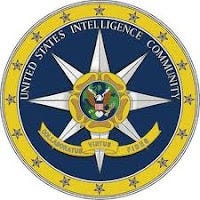U.S. intelligence agencies send "crime reports to the DOJ weekly or everytime an unauthorized disclosure of classified information is believed to have occurred.

“Crimes reports” are official notifications that are sent by U.S. intelligence agencies to the Department of Justice when an unauthorized disclosure of classified information (or another potential federal crime) is believed to have occurred. Crimes reporting is required by statute, by executive order, and by interagency agreement between the Attorney General and the heads of intelligence agencies.
“We file crimes reports every week,” said George J. Tenet in a discussion of leaks during his 1997 confirmation hearing to be Director of Central Intelligence.
“Say again?” said Sen. Robert Kerrey, who may have been unfamiliar with the term used by Mr. Tenet.
“We file crimes reports with the Attorney General every week about leaks, and we’re never successful in litigating one,” Mr. Tenet said.
In general, information or allegations concerning criminal activity by government employees should be reported to the Attorney General pursuant to 28 U.S.C. 535, “Investigation of crimes involving Government officers and employees.”
More particularly, Executive Order 12333 (section 1.6) on United States Intelligence Activities requires the heads of intelligence agencies to “report to the Attorney General possible violations of Federal criminal laws by employees and of specified Federal criminal laws by any other person as provided in procedures agreed upon by the Attorney General and the head of the department, agency, or establishment concerned….”
The unusual term “crimes reports” derives from those procedures, which are set forth in a 1995 Memorandum of Understanding (MOU): Reporting of Information Concerning Federal Crimes, signed by Attorney General Janet Reno and the heads of six other agencies.
Though it is rarely cited in public discussions of leak policy, this MOU provides the structural framework for intelligence community reporting to the Justice Department regarding leaks of classified information, among other potential crimes.
“This Agreement requires each employee of the Agency to report to the General Counsel or IG facts or circumstances that reasonably indicate to the employee than an employee of an intelligence agency has committed, is committing, or will commit a violation of federal criminal law.” Then, “If a preliminary inquiry reveals that there is a reasonable belief for the allegations, the General Counsel will follow the reporting requirements” for submission of “crimes reports.”
Intelligence agency employees are also required to report to the General Counsel of their agency information about certain violations of criminal law that are committed by persons who are not employees of an intelligence agency– specifically including “unauthorized disclosure of classified information.”
Crimes reports in such cases are to be submitted to the Department of Justice, which “shall maintain a record of all special crimes reports received from the Agency.” If, in addition, the agency determines that no public disclosure of classified information would result from further investigation or prosecution of the matter, then it is also to be reported to the appropriate federal investigative agency.
“During the last several years, we have received roughly 50 crime reports each year of leaks to the media of classified information,” said Attorney General Janet Reno in June 2000 testimony before a closed hearing of the Senate Intelligence Committee. (Although she said “crime report”, the preferred locution seems to be “crimes report.”)
http://www.fas.org/blog/secrecy/2012/12/crimes_reports.html


